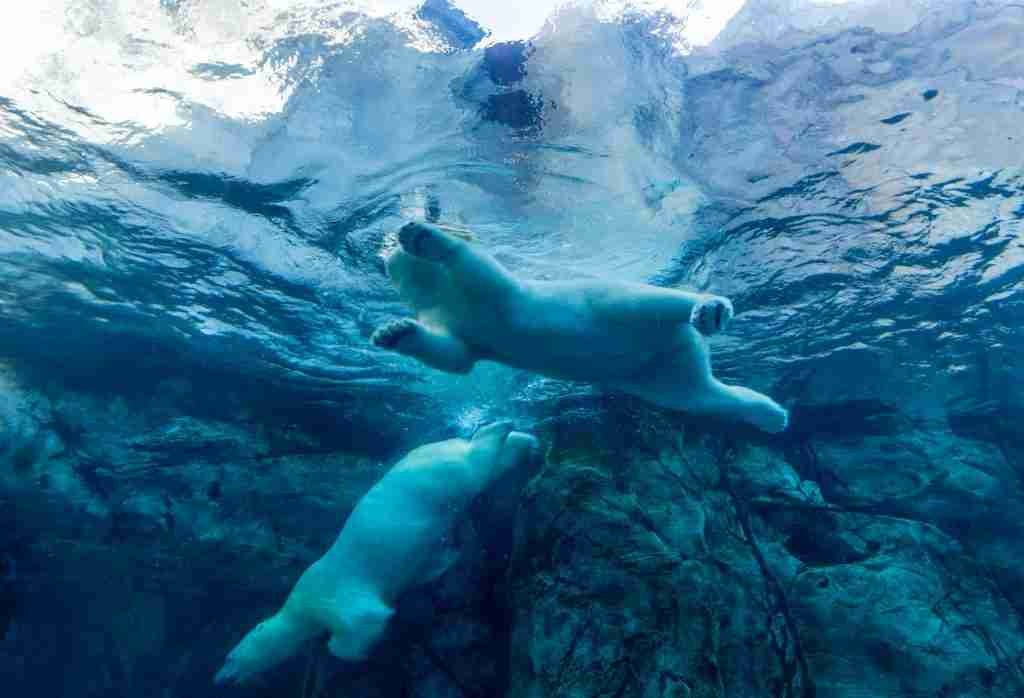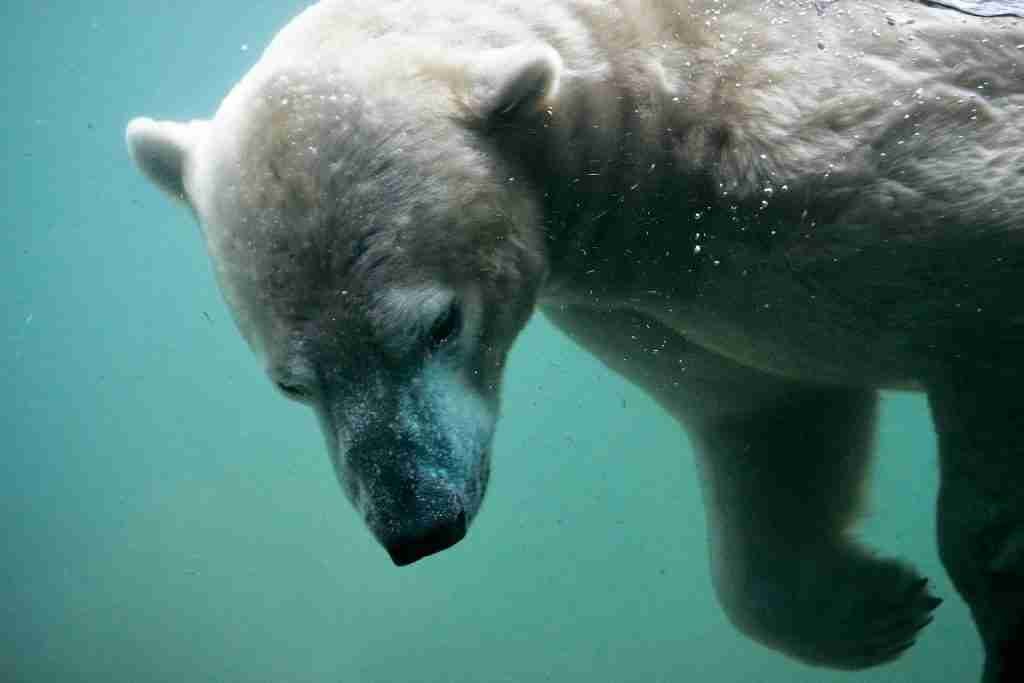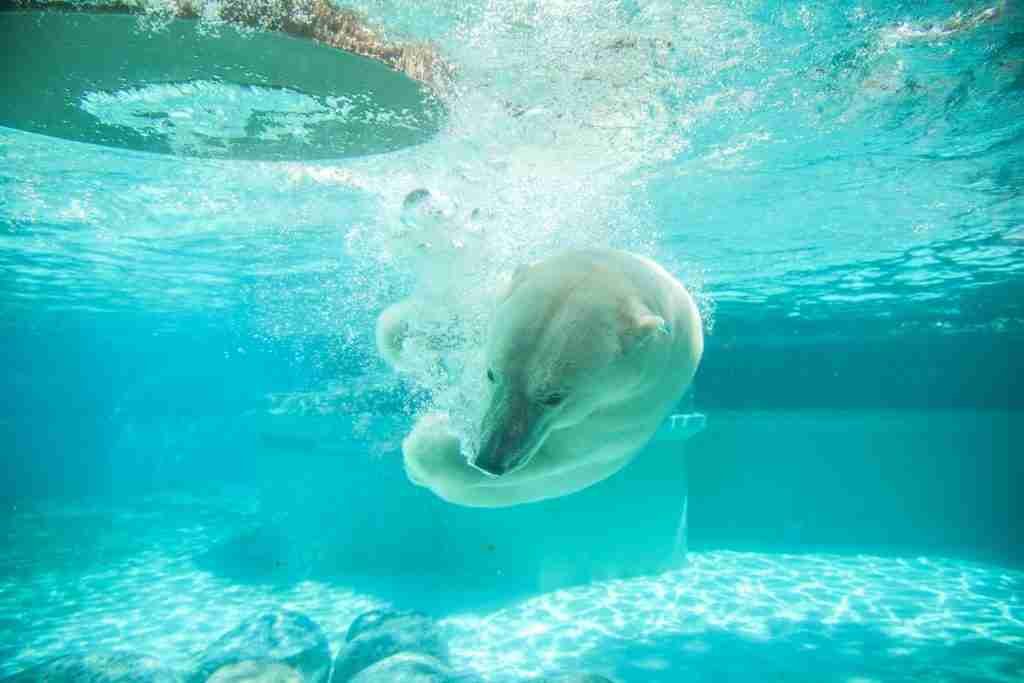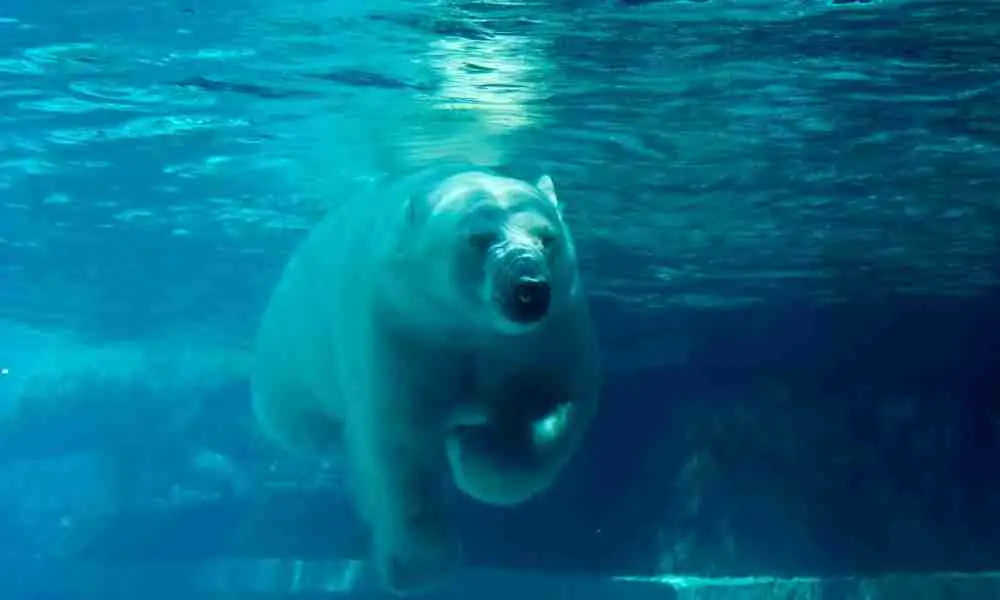Polar bears normally dive for long periods in water when hunting seals and fish. Is it possible they can breathe underwater?
Well, here is what I found out:
No, polar bears cannot breathe underwater. They’re able to hold their breath for some minutes in water, which helps them dive for a long time.
And this ability makes them excellent swimmers of the Arctic.
Now you know why polar bears can’t breathe underwater. It’s important you also understand why this is so.
In this article, I’ll be discussing these reasons and more about polar bears and swimming underwater.
Keep reading below!
Why Can’t Polar Bears Breathe Underwater?
Their Respiratory System
Polar bears’ physiology and respiratory system can only allow them to get oxygen from the air. As a result, they cannot extract oxygen from water like fish and other sea creatures.
In addition, polar bears are just like other land mammals when it comes to breathing. Hence, when these bears swim underwater, they will still need to come out and grasp some oxygen.
No Gills
Most animals that breathe underwater, like whales and seals, have gills. This organ helps them extract oxygen from water.
On the other hand, polar bears do not possess this feature. Therefore, they cannot breathe underwater since oxygen extraction would be impossible.
Less Oxygen Storage
Polar bears cannot breathe underwater due to less oxygen storage. On the other side, marine animals, like whales, can breathe underwater since they have more oxygen storage.
Such mammals store their additional oxygen in the muscles and blood. As a result, limited oxygen storage makes it hard for polar bears to breathe underwater.
Lack of Diving Adaptations

Most of the other sea creatures that breathe underwater have several diving adaptations. These special adaptations include collapsible lungs and a slowing heart rate.
Such capabilities allow sea animals to survive in water due to easy access to oxygen. On the other hand, polar bears don’t have such adaptations and thus cannot breathe underwater.
Natural Selection
During evolution, polar bears only survived by terrestrial hunting. Natural selection made polar bears develop traits of surviving on land more than in water.
These mammals did not need to adapt to breathing underwater. As a result, they developed to lack the skills and need to breathe underwater.
How Long Can Polar Bears Hold Their Breath Underwater?
Polar bears can hold their breath for up to two minutes inside water. Sometimes, they may extend this time to three minutes but not any further.
They use this ability only during important times, like hunting seals and fishing.
What’s the Record for a Polar Bear Dive?

The longest polar bear dive is 3 minutes and 10 seconds. Up to now, there has not been any new record yet.
In most cases, you can see polar bears diving for intervals of 30 seconds. Most would only go underwater for a minute before coming up for more air.
However, currently, there is no information on the maximum depth that polar bears can dive. Due to this fact, it’s clear that new diving records can come up at any time.
Related Questions:
Do Polar Bears Sleep in Water?
No, polar bears do not sleep in water despite being known to spend lots of time around water. They can only sleep on land or floating sea ice.
These mammals cannot breathe underwater, so they can’t sleep there. Nevertheless, polar bears love sleeping in shallow pits that they dig on land or snow.
Can Polar Bears Drown?
When they spend long hours swimming without rest, they may get tired. When they are tired, they find it hard to keep swimming.

Yes, polar bears can drown on several occasions. These mammals breathe only through the nasal cavity, just like humans.
As a result, they get stuck and drown. They may sink and drown since they can’t get oxygen from water. Additionally, rough seas may also sweep away these mammals and cause drowning.
Recap:
Polar bears cannot breathe underwater. These bears can’t breathe for several reasons:
- Lack of gills which makes it hard to obtain oxygen from water
- Large body size makes them need more oxygen
- Inability to store more oxygen
We’ve seen how polar bears can stay for a while underwater. But isn’t this risky to do in a cold environment like the Arctic?
Come to think of it – Can polar bears die from freezing? Check out our article Can Polar Bears Freeze to Death?
Sources:

